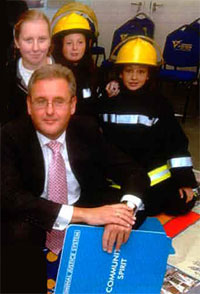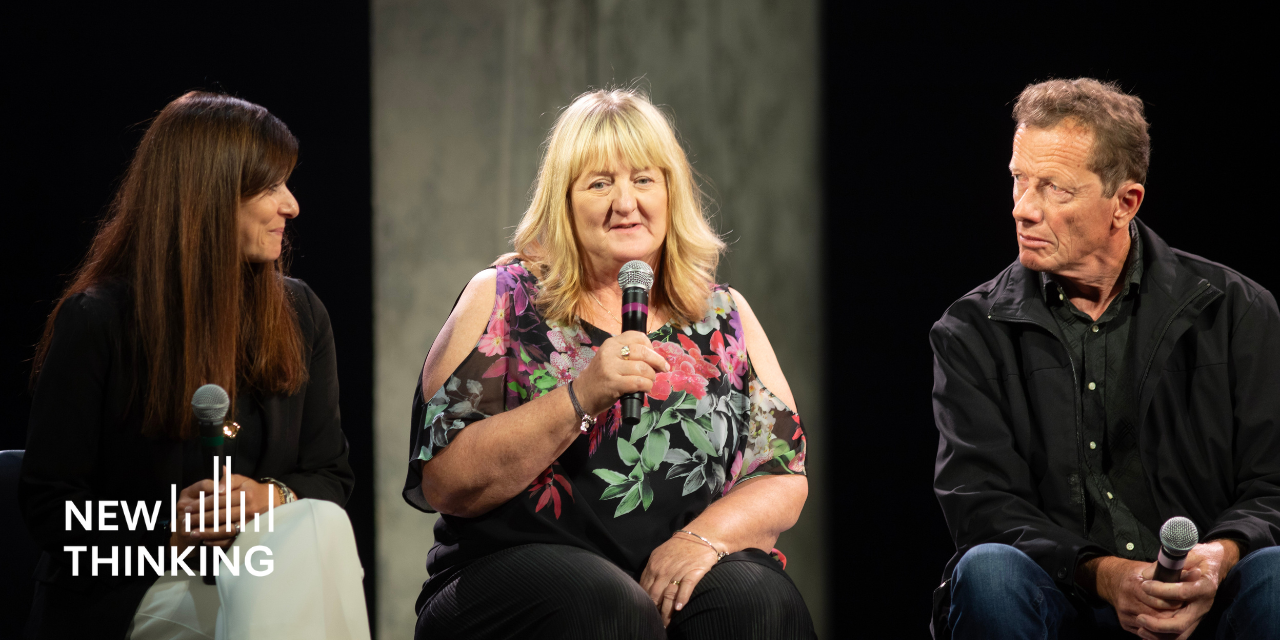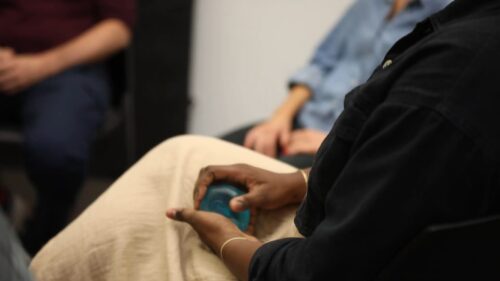
In 2004, Judge David Fletcher was selected to preside over the North Liverpool Community Justice Centre, England’s effort to replicate the Red Hook Community Justice Center. Shortly thereafter, Judge Fletcher spoke with Robert V. Wolf of the Center for Court Innovation.
The North Liverpool Community Justice Centre has been open six months. How are things going? Things are going extremely well… The work we’ve been doing is exciting and interesting. We’ve been working hard to forge links to the community and develop this project. We’re getting busier and busier.
What kinds of cases are you dealing with?
We are dealing with a big range. We’ve had lots of incidents around anti-social behavior, particularly behavior around groups of young men, lots of drug-related offenses. We also had quite serious stuff, nasty assault cases. The one thing we don’t do is sexual offenses… But we deal with more than cases. Anyone from the community can bring their problems and be signposted to the people who can help deal with their issues. If a parent comes in and they have a child they’re worried may start dabbling with drugs, they’ll have people who can help them… We’ve sponsored lots of activity in the community, like a football competition. We have facilities for community meetings…
Are defendants surprised by what they find in the courtroom?
The biggest surprise is when I don’t speak to their lawyer and just speak to them. You see a look of surprise. We’ve only been open about six months, but from what I can tell the re-offending rate is tiny, probably less than 10 percent as opposed to the national average, which is much higher. I think it’s the continued involvement with the judge which is really making a difference.
Do you wear the customary garments of a British judge?
No, just a dark suit.
Have you experienced any other benefits of the model so far?
There are huge advantages in the way we ascertain information. We’re the only court in the country that has an inter-agency problem-solving team. The team interviews defendants with their lawyers and specialists [such as mental health or substance abuse counselors] present then comes back and reports to me… It’s resource intensive, but if they weren’t doing this, I’d have to adjourn for three or four weeks and probation would need seven hours to complete a lengthy report. Instead, I get the information their first day in court.
What lessons did you take from the American model?
I think the principal one is the idea of having a single judge who gets to know the people, the area and the programs very well. If I’m sending someone to a specific drug program I can know what’s required and I can explain it to them, and can ask them are you ready to do this and they can answer and if not we can work out something else.
What kinds of outcomes are most important to you? How would you define success?
One of the outcomes would be witness and victim satisfaction with the process. We set a lot of store by our relationships with victims and witnesses. We’ll use restorative approaches, like meeting with the perpetrator of criminal activity, or at least give victims the chance to let them know how the criminal act affected them; and I want to know how they [victims] respond to the way the criminal justice handled their cases. Also I want to know about the behavior of defendants, how they responded to sentences, if they’ve changed at all and have they stopped offending; and how the community feels about the whole thing, whether they feel safer, more content to be out and about.
How has the community reacted to the project so far?
Initially, there was some hostility. The community felt they’d had this thing dumped on them, that it was a massive PR exercise. This city has had in the last 20 years numerous initiatives, here today and gone tomorrow. In addition, a lot didn’t want a courtroom in the middle of where they were living. They thought it would encourage drug users coming to the area. We told them that there’s less likely to be criminal activity near a court… Six months down the line, the Liverpool Echo did an article in which they interviewed a number of local residents and they were extremely positive. It was wonderful.
What changes might be implemented at the Justice Centre over the next year? Over the next five years?
We’ll try to move forward in terms of raising [public] confidence. We have this strange thing in the United Kingdom that crime levels are falling but the public perception is the complete opposite. We’ve really got to turn that around… As a laboratory to test new initiatives, we’re going to evolve.
From a personal perspective, how have you found the job?
I love it. It’s very tiring. There are lots of meetings outside normal business hours, but the people in the area are fantastic.

